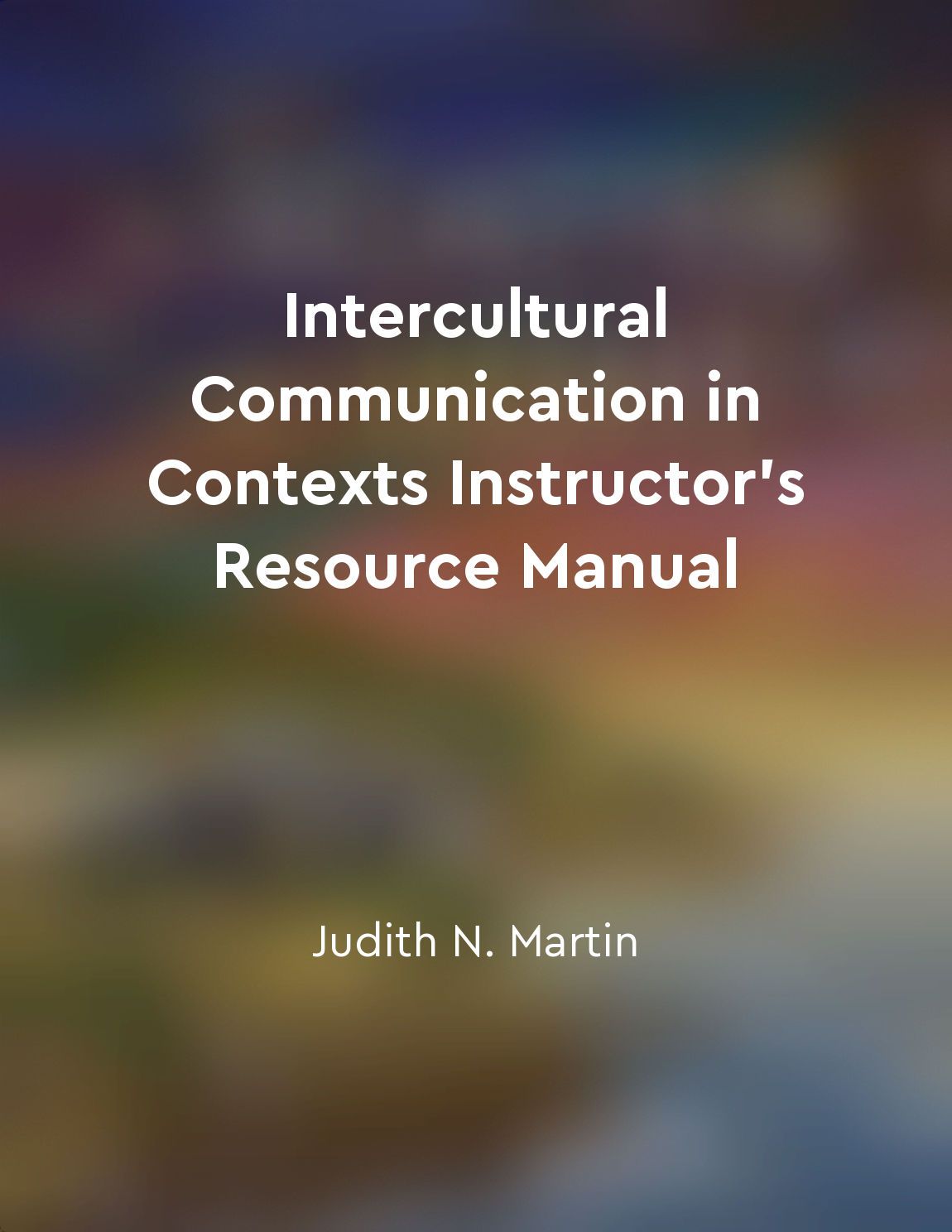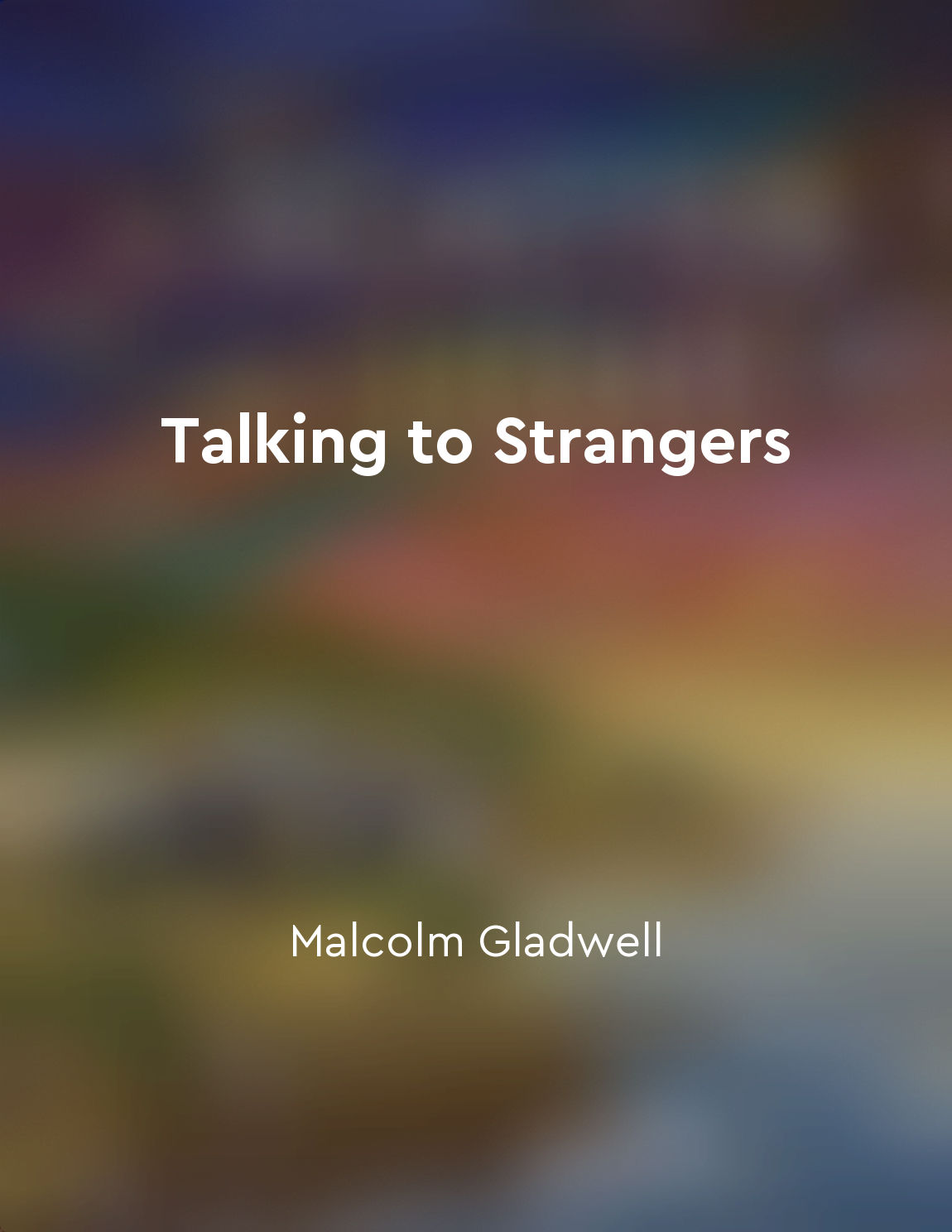Our biases can impact our interactions with strangers from "summary" of Talking to Strangers by Malcolm Gladwell
When we encounter strangers, we rely on our initial impressions to form judgments about them. These judgments are often based on our biases - preconceived notions and stereotypes that influence our perceptions. Our biases can affect how we interpret a stranger's words and actions, leading us to misjudge their intentions and character. This can result in misunderstandings and conflicts in our interactions with strangers. Our biases are shaped by a variety of factors, including our personal experiences, cultural background, and social conditioning. These biases can cause us to make assumptions about strangers that may not be accurate or fair. For example, if we hold negative stereotypes about a particular group of people, we may be more likely to interpret a stranger's behavior in a negative light, even if their actions are harmless or well-intentioned. In some cases, our biases can lead us to overlook important information that contradicts our initial impressions of strangers. This can prevent us from forming genuine connections with others and can hinder our ability to communicate effectively. We may miss out on valuable opportunities for growth and learning if we allow our biases to cloud our judgment in our interactions with strangers. It is important to recognize the influence of our biases and to make a conscious effort to challenge them when interacting with strangers. By taking the time to question our assumptions and consider alternative perspectives, we can strive to approach interactions with an open mind and a willingness to learn from others. This can help us to build more meaningful and positive relationships with strangers, based on mutual respect and understanding.Similar Posts
Respecting cultural diversity leads to stronger team cohesion
When working in a team made up of individuals from different cultural backgrounds, it is essential to recognize and respect the...
Education should foster individuality
Education should foster individuality by recognizing the uniqueness of each person's mind and spirit. This means that educators...
Mirrors remind us of our mortality
Mirrors are like doors that open onto our own image. They are magical devices that allow us to see ourselves as others see us. ...
Practice active listening to deepen your understanding
To truly understand someone, we must go beyond simply hearing their words. Active listening is the key to deepening our compreh...

Practice mindfulness to stay present and focused
Mindfulness is the practice of paying attention to the present moment without judgment. It’s about being fully aware of what’s ...

Adapting communication styles to fit cultural contexts is beneficial
The ability to adapt communication styles to fit cultural contexts is a valuable skill in today's interconnected world. When in...
Practice mindfulness in your daily life
The practice of mindfulness in your daily life is a powerful tool for becoming more present and aware of your thoughts, feeling...
Master the art of reading people to enhance your personal and professional success
Understanding how to read people is not a mere party trick. It is a valuable skill that can greatly impact your personal and pr...
Listening is a skill that can be learned and improved
Listening is not just a passive activity, like breathing or blinking. It is an active process that involves effort and attentio...
Trusting in your abilities is important in mind reading
To truly excel in the art of mind reading, one must have unwavering trust in their own abilities. This trust is not just a nice...

